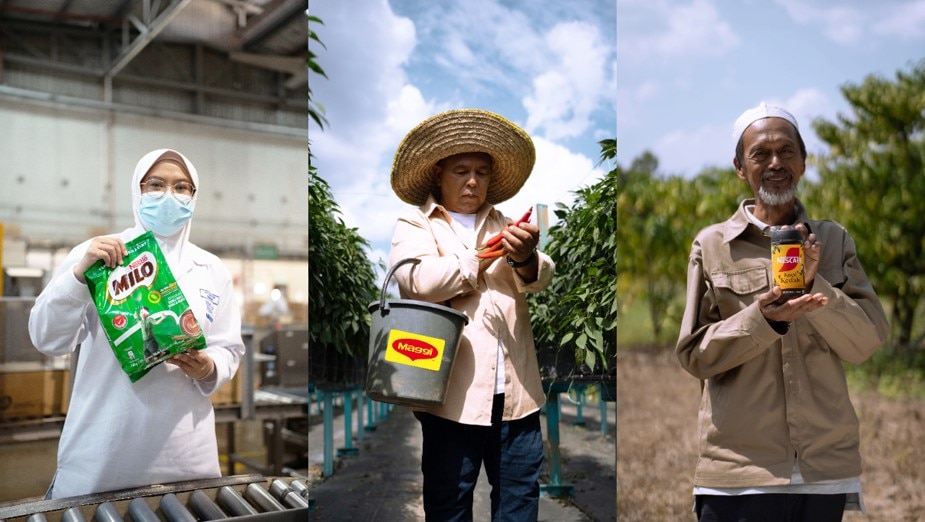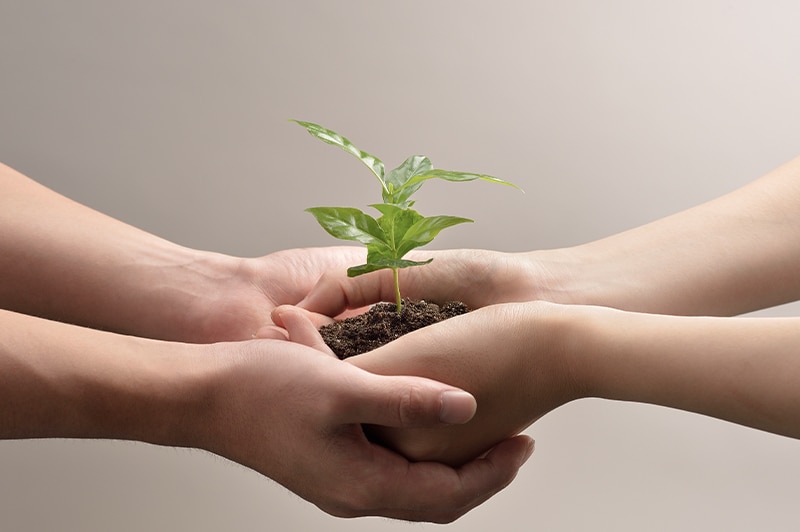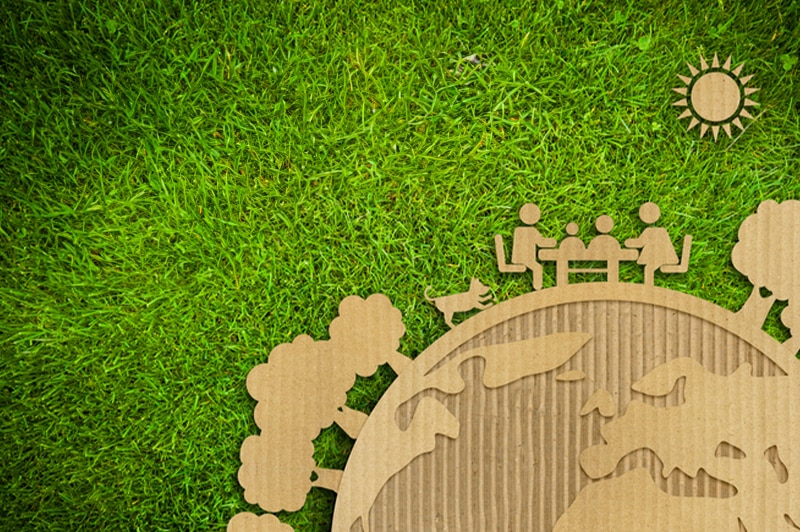Why Your Kitchen Choices Matter
The things we use in our kitchens have a serious impact on the environment. For example, regular cleaning products often have harsh chemicals that mess with waterways and hurt aquatic life while single-use plastics such as containers, bottles, and utensils are adding up to the already critical plastic waste problem. Additionally, the production of regular household items uses up a lot of resources which significantly contributes to greenhouse gas emissions, increasing the surface temperature of our planet over time.
It's essential to recognize that our kitchen choices are not just personal preferences; they are impactful decisions that shape the health of our ecosystems and the future well-being of our planet.
What Are Eco-Friendly Products?
In simple terms, eco-friendly products are products that do not harm the environment.
These products are designed to minimize their environmental impact throughout their life cycle. A product can be considered eco-friendly if they are made from natural or recycled materials and ingredients, produced with energy-efficient methods, and are packaged minimally using recyclable or biodegradable materials. Additionally, eco-friendly products are durable and non-toxic, and designed for easy recycling or composting at the end of their use.
Choosing eco-friendly kitchen products over regular products benefits the environment, conserves resources, and minimizes pollution. Best of all, as eco-friendly products do not contain harsh chemicals, they are healthier for you and your family.
By being selective and mindful of your kitchen choices and choosing eco-friendly products, not only will you be contributing to a better future for the planet, you will also be introducing your family to a healthier lifestyle while educating the young ones about the importance of using eco-friendly products.
Let’s explore some of the steps that can be taken to create your own environmentally sustainable kitchen to kickstart your journey as an environmental hero!
6 Eco-Friendly Product Swaps for Your Kitchen
1. Natural Cleaners:
Conventional cleaning products often contain toxic chemicals that are harmful to human health and the environment. Transitioning to eco-friendly cleaning products is one of the easiest ways to create a more sustainable kitchen.
Instead of using harsh chemical cleaners, opt for natural cleaning solutions made with ingredients like baking soda, vinegar, lemon juice, and essential oils. Transforming these everyday ingredients into effective cleaning products is a simple yet empowering process that can be a fun learning experience, making it an ideal activity to share with kids.
This hands-on approach not only deepens your understanding of the ingredients but also ensures that your cleaning routine is free from harmful chemicals, promoting a more sustainable and eco-friendly home environment.
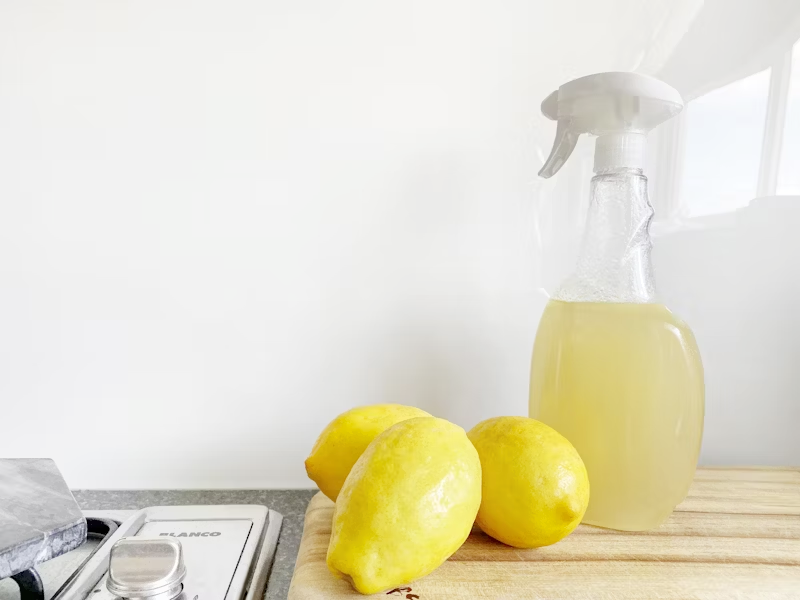
Lemon juice can be used as natural cleaners where it can clean without polluting indoor air.
Alternatively, if you’re not the kind of person who enjoys hands-on activities, you can choose to purchase eco-friendly cleaning products in store instead. Look out for products that avoid harsh chemicals like chlorine, formaldehyde, and phosphates. Find products with ingredients that we have mentioned above.
2. Energy Efficient Appliances:
Yes, making your own eco-friendly products are fun, but when it comes to kitchen appliances, it’s better to leave it to the experts.
When it's time to replace kitchen appliances, always be on the lookout for high Energy Star rating certified models which meet strict energy efficiency guideline set by the Tenaga Nasional Berhad. The highest rating that you can find are 5-star efficiency ratings.
Replacing old appliances with new energy efficient and eco-friendly products can make a significant impact on your home's energy use and carbon footprint. This is by far the easiest way to turn your kitchen into a 5-star kitchen.
3. Reuse Those Containers:
As Malaysians, we all have a cabinet full of unused plastic containers, lying around for those “just in case” moments, never used. Why not use them the next time you tapau from a restaurant or pack food from home? Reusable food storage containers made from sustainable materials are an essential part of an eco-friendly kitchen. While some may say that single use plastic containers are cheaper, the more durable non-toxic alternatives, such as glass or stainless-steel containers, are better in the long term for your health and the environment. Think of it as an investment for a healthier household. Besides, most businesses charge extra for takeout containers and investing in a good reusable container means that you will not have to replace them often.
This practice is not only limited to food containers. Another popular item that is environmentally friendly are reusable water bottles or coffee cups. Not only are these products able to conserve the temperature of your drink, you’ll also avoid toxic chemicals from disposable bottles and plastic cups and save money in the long run.
On the topic of coffee, Nescafe’s Gold and Classic series offers a great reusable glass jars that can be used to store kitchen ingredients such as condiments and spices or even store liquids since Nescafe’s jars seal hermetically (meaning they’re airtight).
With reusable food and water containers, not only does your food stay fresh, free from any chemicals, your kitchen will also contribute less plastic waste to the environment. Say goodbye to single use plastic containers for reusable ones.
4. Upgrade Your Utensils:
Visualise this. So you’ve managed to bring food from home in a reusable container. That’s great! Lunch time comes, and you start to dig in using plastic utensils, they break. You reach out for another set of plastic utensils, they break again. This goes on and you end up not eating lunch.
While that scenario is certainly exaggerated, it’s one of the reasons why you should trade out your traditional plastic kitchen utensils for more durable and eco-friendly alternative products such as bamboo or stainless steel. Not only can you have a stress-free lunch, you’ll also contribute less towards plastic waste.
In the kitchen, investing in these sustainable options not only brings a touch of charm to your kitchen, since these items are also chemical-free and biodegradable, promoting healthier cooking.
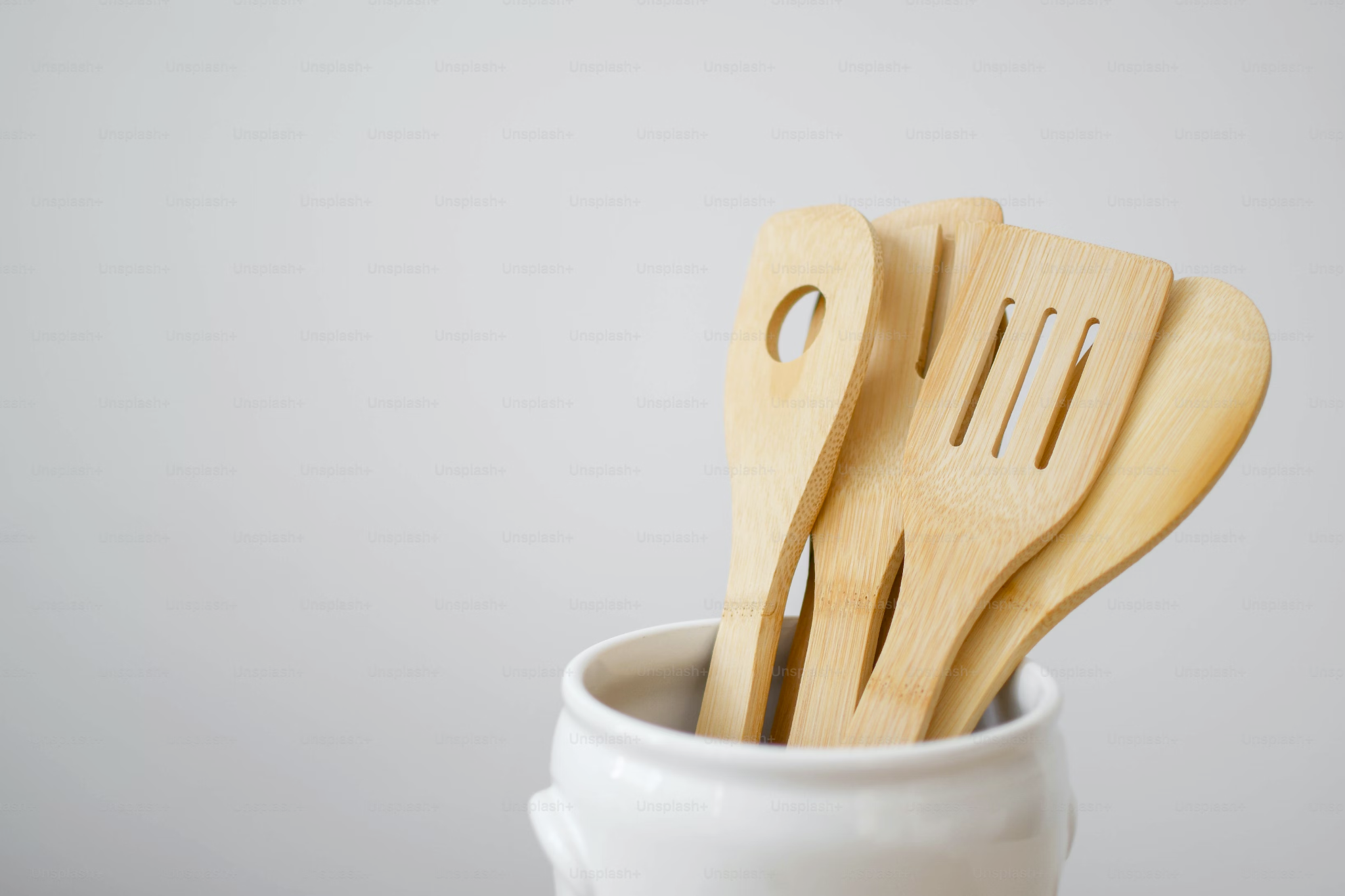
Switching to eco-friendly utensils helps reduce plastic waste and promotes healthier cooking.
One of the easiest ways to start replacing kitchen utensils with eco-friendly alternatives is by replacing plastic straws with reusable straws. In the food and beverage industry, Nestlé Malaysia is the first in Malaysia to innovate their packaged drinks to be more sustainable by transitioning to paper straws for Milo. By following the footsteps of Nestlé Malaysia, you will be contributing to their efforts in eliminating over 200 million plastic straws each year.
To take it to the next level, you can also replace your existing cookware with ones that are made from cast irons for its durability, versatility and natural non-stick properties. With proper care, you can even pass down cast iron cookware to your grandchildren.
5. Cut Back on Paper Waste:
While we have been focused on reducing plastic waste in the past few points, the use of disposable paper towels are often overlooked. Instead, opt for reusable cloth towels. Not only will it help reduce waste, it also conserves resources and lowers the carbon footprint associated with manufacturing and disposal. Less paper waste means less deforestation, ensuring a literally greener future.
You can also take it a step further by replacing toilet paper with bidets or reusable cloth wipes that can be washed and reused. These are just some of the small changes, that have a big impact.
6. Compost Your Scraps:
We Malaysians love our food. And while we were taught to always finish our food and not waste, sometimes, we just can’t help it. Unfortunately, Malaysians waste about 16,688 tonnes of food per day which could feed about 2.2 million people, up to THREE TIMES A DAY!
To negate this problem, turn your food scraps and waste into nutrient-rich soil through composting!
Composting significantly reduces landfill waste and curbs the emission of greenhouse gases. This environmentally conscious approach not only encourages sustainability in the kitchen but also supports the cultivation of sustainable gardening practices, allowing you to create your own cost-effective fertilizers for your plants.
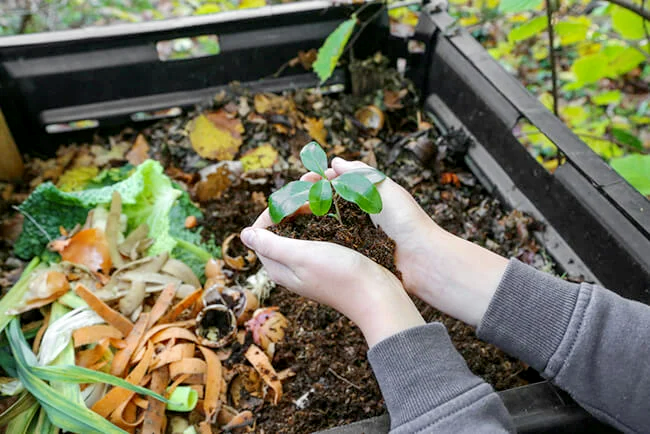
Composting food scraps not only reduces waste but also lowers emission of greenhouse gases.
Nestlé Malaysia’s Efforts in Reducing Carbon Footprint
As a leading food and beverage company, Nestlé Malaysia takes sustainability seriously. Nestlé’s factories in Malaysia has taken steps to operate more sustainably. As of 1 January 2022, Nestlé Malaysia has transitioned to 100% renewable electricity across all its operations in Malaysia[3]. This will allow the company to reduce carbon emissions by 75,000 tonnes of CO2 equivalent every year[4].
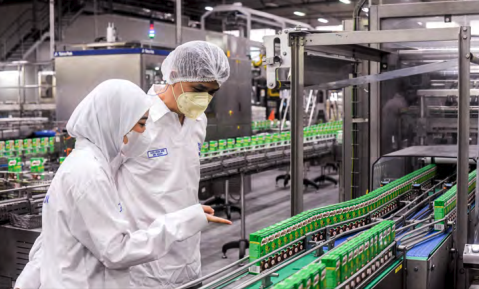
Nestlé Malaysia’s operations have shifted to 100% renewable energy.
Nestlé Malaysia has also cut water usage per tonne of product by 20% since 2015 [4]. These efforts have tangibly reduced Nestlé's environmental footprint while still enabling them to deliver quality, affordable nutrition.
By championing eco-friendly production, Nestlé Malaysia demonstrates how a large corporation can promote sustainability and showcases a commitment to protecting the planet for future generations.
With certifications such as Rainforest Alliance[1] and Roundtable on Sustainable Palm Oil (RSPO)[2], you can be assured that choosing Nestlé means choosing a better future for our environment.
Though it may seem pointless at first, with small, gradual changes, any kitchen can become a model of sustainability. Eco-friendly products for the kitchen isn't just good for the planet - it can also save money, build better habits, and show others how easy sustainable living can be. Our collective shift towards more sustainable homes and consumption habits will preserve our shared environment for generations to come.







